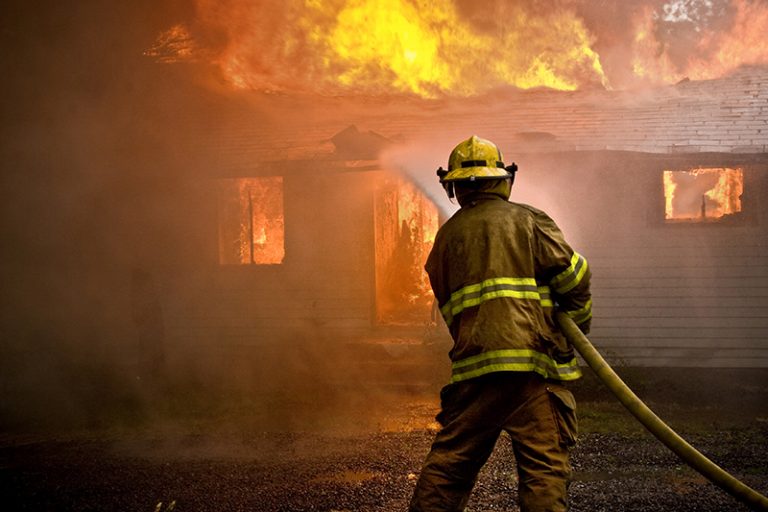How to Help Prevent House Fires

October is Fire Prevention month and it’s the perfect time to talk to your family about fire safety- including testing alarms, changing batteries, how to use a fire extinguisher and escape route planning. And it’s a great time to review this list of top causes of house fires and what you can do to prevent them:
Faulty Wiring and Outlets
Check the electrical cords throughout your home for signs of fraying, and replace all frayed wires.
Do not pinch or cover electrical cords with items such as rugs.
Be aware of the capacity of your home’s electrical system. Do not overload your circuits.
Understand the difference between surge protectors and power strips—both allow you to plug in multiple electronic devices, but only the surge protector will help protect these devices from a power spike. Use surge protectors to protect valuable electronic devices, such as computers and televisions.
Carelessness in the Kitchen
Never leave your pots or pans unattended on your stove.
Keep a kitchen fire extinguisher readily available and know how to use it.
Keep your stove and oven clean. Built up food splatter or grease can later ignite when the stove or oven is turned on for cooking.
Clothes Dryers
If you are installing your own dryer vent, follow the directions in the manufacturer’s installation instructions, using the recommended duct material. If you are unsure about how to properly install the vent, consider hiring a professional to do the installation.
Clean out the dryer vent regularly.
Clean out the lint filter after each load.
Lint may also collect under and behind your dryer, so do not forget to clean these areas.
Alternative Heating Sources
Avoid using an older space heater, as it may not have adequate safety features compared to newer units. When purchasing a new space heater, ensure it is UL Listed and pay attention to the safety features.
Do not place a space heater near furniture, curtains or other objects that could easily catch fire.
Dirty Chimneys
Have your chimney inspected annually by a Chimney Safety Institute of America (CSIA)-certified chimney sweep. Have a professional clean and repair the chimney as needed, especially before the cool months, when you will be using it frequently.
Use seasoned wood only. Never burn green or damp wood.
Never burn cardboard boxes, wrapping paper, trash or trees in your fireplace—these can all spark chimney fires.
